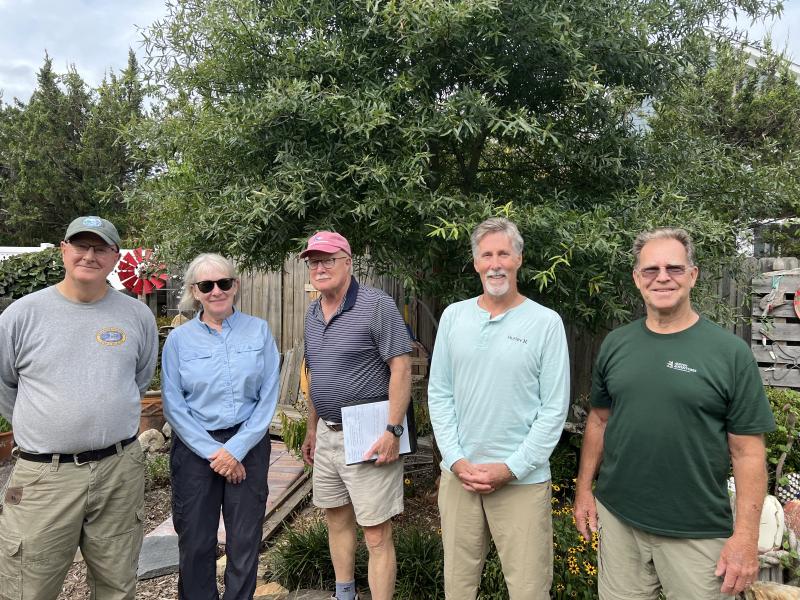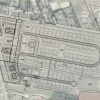Master naturalists conduct Fourth Street Preserve inventory
Understanding the species and status of trees, plantings and wetlands areas within the Lewes Fourth Street Preserve is essential to planning for its future restoration and public use.
Recently, a team of local master naturalists, working with Delaware’s Chief Botanist William McAvoy, undertook a daylong study of the site’s flora and plant communities.
Preliminary results indicate high potential for restoration over time, combining opportunities for passive recreation with habitat for wildlife and essential flood prevention.
The team’s report will be used in future grant submissions for funding to acquire and later manage the preserve, and in the development of design plans for public use, said James Ford, Fourth Street Preserve campaign chair. Additional surveys will be taken soon of the site’s avian, amphibian and animal life.
Delaware’s master naturalist program trains volunteers to become stewards of natural lands, said Robert “Blake” Moore, program director. It is a partnership among the University of Delaware Cooperative Extension, the Delaware Nature Society and local organizing partners across the state.
Rodney Robinson, a prominent Delaware landscape architect, has volunteered his time for the initial preserve design, which will be reviewed by the City of Lewes and community members. A Lewes resident, Robinson chairs the Friends of the Lewes Canalfront Park board and was the design architect for the Lewes Unleashed dog park.
Ford said the preserve’s initial design will be as simple and natural as possible, with limited permeable pathways for public recreation and educational purposes. Over time, the preserve will become a thriving urban forest with managed wetlands, and a wealth of native trees and plantings to attract and support a rich variety of avian, animal and amphibian species.
“Rodney’s design will accommodate the site’s soil conditions, wetlands and its critical role in flood prevention,” Ford said. He noted that interest has been shown by the Cape Henlopen School District in use of the preserve as a natural classroom for nearby elementary and middle school students.
Moore said the preserve also could serve as a training area for the Delaware Master Naturalist Program. The Delaware Forest Service has also voiced interest in the preserve becoming a model for the creation of other urban forests across the state.
A campaign to raise $8 million to purchase the 30-acre tract is underway and has now reached 70% of its goal, Ford said. Once acquired, the preserve will be owned and managed by the City of Lewes under a conservation easement.
The project and the campaign to save the Fourth Street Preserve, Lewes’ remaining open space and forest, is an initiative of the Greater Lewes Foundation.
For more information, go to osalewes.org.


















































